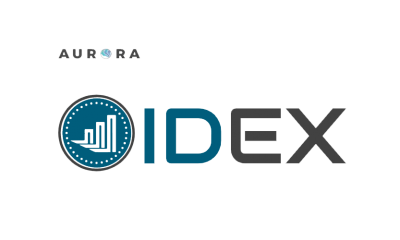FEATURED
Manage Your Billings, Connect With Customers and Grow Your Business with Aurora

Technology has been used to provide several solutions to power businesses as well as accelerate growth globally. Statistics show that global retail sales will get to 31.7 trillion U.S. dollars by 2025. One of the major reasons is that people buy more online now than ever before. More than 1.92 billion digital buyers and eCommerce sales accounted for 14.1% of retail purchases globally in 2019 and that number is rising.
Despite these increasing figures, the real business owners who make this happen are still not served efficiently with technological tools. Most of these business owners who are resellers are either not using digital, therefore working manually or their work is connected fully. So that they cannot use these tools to carry out all their operations. With this, productivity, growth, and profit are hindered drastically. This is why Aurora was developed.
What is Aurora?
Aurora is designed to be a platform where resellers can have all their operations done in a single platform. So instead of having business processes conducted in an unrelated manner using manual labor and systems, resellers will have a tool that gives end-to-end solutions to business problems.
These activities include recording business activities like sales, ordering goods, delivering goods to customers, monitoring sales, inventory, and much more.
Features of Aurora
On Aurora, resellers have access to Affinity Sales. This CPQ (Configure, Price, Quote) tool can be used to control the prices of goods and services, set margins, and create a quote for customers. And this can be done in real-time.
Although Affinity Orders is a feature that is yet to be available in the Aurora platform, it will deliver seamless business processes for resellers. With it, users can carry out automated provisioning, have an overview of users’ operations via an order dashboard, and lots more on monitoring orders.
“With Affinity Billing, you can manage everything in one place,” says the website. “From creating and managing customers, tariffs, service charges to tracking revenue from invoicing. No need to re-key information between multiple systems.”
Affinity Hub is another feature that is yet to be released but once released, it will be a gateway for users to connect with customers, manage their accounts autonomously, and receive reports about their customers to make decisions.
In the Affinity Marketplace, resellers and customers have access to a lot of SaaS products that they can use all in one spot. These products are designed to be chosen and implemented seamlessly to the profile of users so that they don’t have to go out of the platform to seek such tools. So, with this, users can sell, order, onboard, and bill third-party agents so cheaply.
Affinity Enterprise provides a good billing system for experienced resellers, making it easier for complex services and call records to be billed accurately and quickly.
Affinity Insight with the help of AI and machine learning tools will help users “identify and understand trends and turn them into opportunities for up and cross-sell,” according to the website. While Affinity Support is a dedicated automated system created to respond to customers’ needs at any time. They can also be self-initiated for individual use.
Read this also:
- Bitcoin SV: Blockchain Powering Governance & Business Processes
- CoinsPaid; Pay, Receive, and Exchange Crypto As a User and Business Owner
- Globiance; Exchange Crypto, Fiat, and Stablecoins on XDC Blockchain
Other Services and Projects Executed
Other services offered by Aurora are Cost Consulting, where clients are helped to keep optimized margins, reduce buying costs, increase margins and grow cash; Mobile-based Billing so that with or without PCs, clients can carry out billing processes with their mobile devices; and LogicMonitor Professional Services and Monitoring Consultancy.
The team has worked with tools like BMC TrueSight, Nagios, CA UIM, Solarwinds, Kaseya Traverse, Managed Engine OpManager, and HP OpManager. And then, with Aurora, clients can be given customized tools based on their needs so that no problem goes unsolved.
Challenges and Road Map of Aurora
Competition remains one of the topmost challenges for tech companies in today’s world. And so Aurora has that as a challenge. Although research shows that the brand has been in business since 1997 and has been rebranded severally to meet up with market demands.
On the road map, not much information was given apart from the historical dynamics of the company being founded in 1997, sold to Alternative Networks PLC in 2009, and then Daisy Group bought it in 2016. Then in 2019, it was relaunched as an independent software business.
Team and Partners Behind Aurora
Ant Molloy is the CEO of Aurora with the responsibility of leading and directing the development of Aurora’s vision, mission, and long-term strategy. He understands the field of software development to solve problems as he has run his firm and served as Chief Software Officer for over 8 years.
Kevin O’Brien leads the finance, HR, procurement, and corporate travel teams as the CFO of Aurora. He has previously worked as a Financial Planner and Analyst in two IT and Telecoms brands as well as provided services in a privately owned renewable energy company.
You can see the other team members here.
Conclusion
Aurora promises to use discovery, to know what clients need and design their solution; verification to validate organizations, guidance… and more to give reseller businesses the best system to grow their business. You can try a demo to see if it fits your business.















Pingback: Manage Your Billings, Connect With Customers and Grow Your Business with Aurora by Chuks Nnabuenyi Jr – CryptoTvplus Events: NFT, DeFi, Bitcoin, Ethereum, Altcoin Events
Pingback: MetaWeb Ventures raises $30 Million blockchain fund | CryptoTvplus: DeFi, NFT, Bitcoin, Ethereum Altcoin, Cryptocurrency & Blockchain News, Interviews, Research, Shows